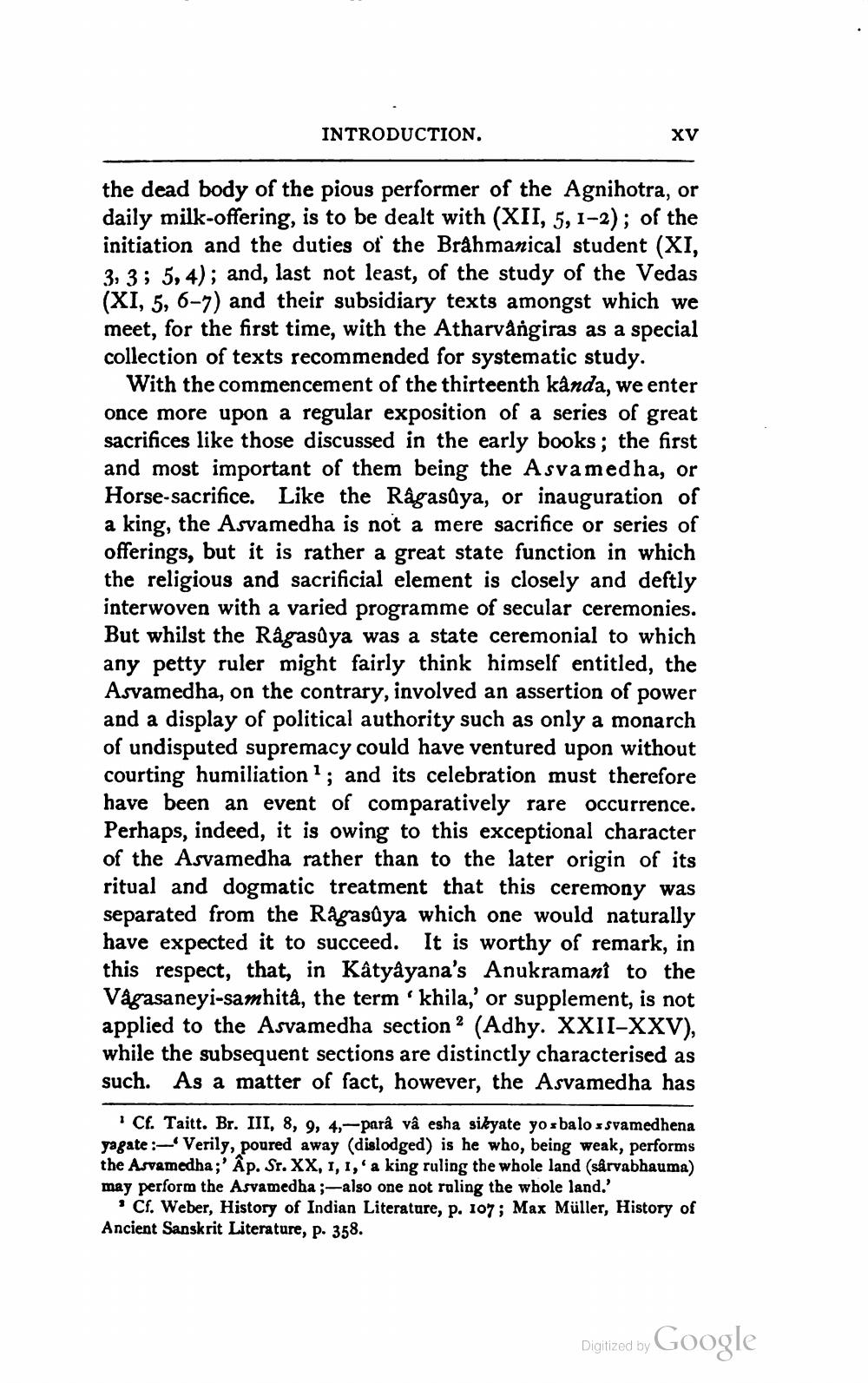________________
INTRODUCTION.
XV
the dead body of the pious performer of the Agnihotra, or daily milk-offering, is to be dealt with (XII, 5, 1-2); of the initiation and the duties of the Brâhmanical student (XI, 3, 3 ; 5, 4); and, last not least, of the study of the Vedas (XI, 5, 6-7) and their subsidiary texts amongst which we meet, for the first time, with the Atharvangiras as a special collection of texts recommended for systematic study.
With the commencement of the thirteenth kânda, we enter once more upon a regular exposition of a series of great sacrifices like those discussed in the early books; the first and most important of them being the Asvamedha, or Horse-sacrifice. Like the Râgasaya, or inauguration of a king, the Asvamedha is not a mere sacrifice or series of offerings, but it is rather a great state function in which the religious and sacrificial element is closely and deftly interwoven with a varied programme of secular ceremonies But whilst the Rågasûya was a state ceremonial to which any petty ruler might fairly think himself entitled, the Asvamedha, on the contrary, involved an assertion of power and a display of political authority such as only a monarch of undisputed supremacy could have ventured upon without courting humiliation; and its celebration must therefore have been an event of comparatively rare occurrence. Perhaps, indeed, it is owing to this exceptional character of the Asvamedha rather than to the later origin of its ritual and dogmatic treatment that this ceremony was separated from the Râgasûya which one would naturally have expected it to succeed. It is worthy of remark, in this respect, that, in Kâtyåyana's Anukramani to the Vågasaneyi-samhità, the term 'khila,' or supplement, is not applied to the Asvamedha section 2 (Adhy. XXII-XXV), while the subsequent sections are distinctly characterised as such. As a matter of fact, however, the Asvamedha has
Cf. Taitt. Br. III, 8, 9, 4,-parâ vâ esha sikyate yo sbalo ssvamedhena yagate :- Verily, poured away (dislodged) is he who, being weak, performs the Asvamedha;' Âp. Sr. XX, 1, 1,'a king ruling the whole land (sârvabhauma) may perform the Asvamedha ;-also one not ruling the whole land.'
Cf. Weber, History of Indian Literature, p. 107; Max Müller, History of Ancient Sanskrit Literature, p. 358.
Digitized by Google




